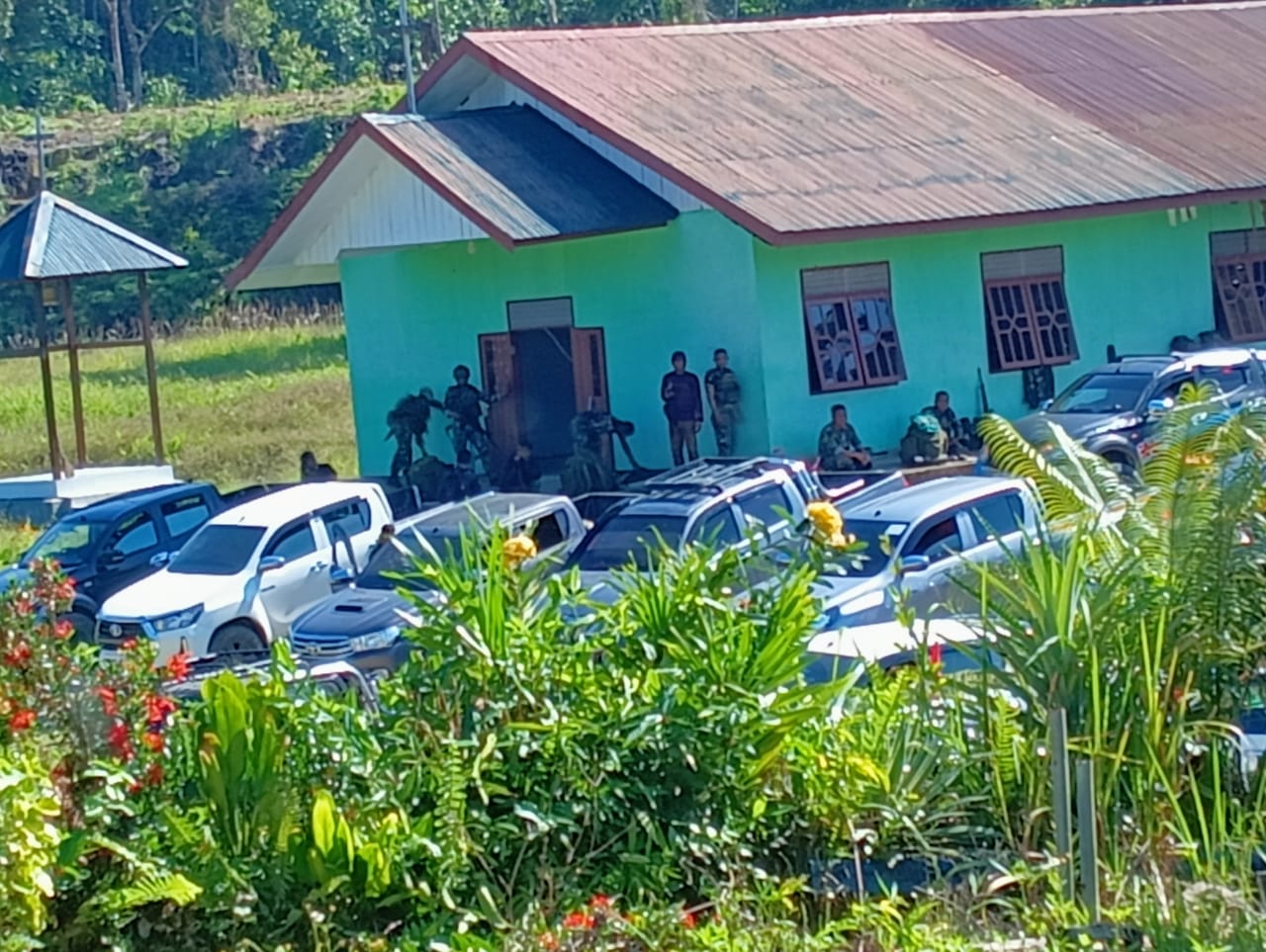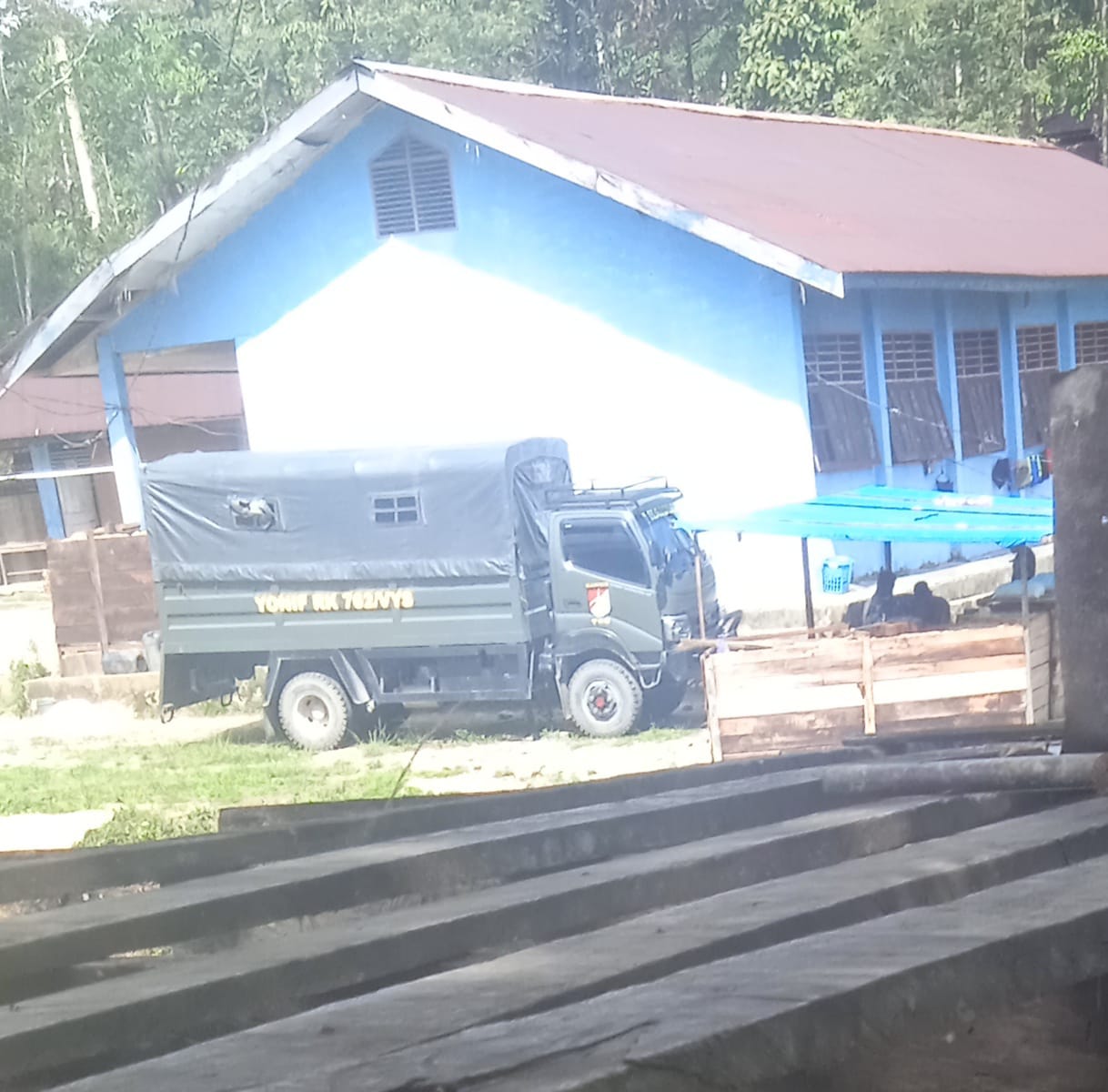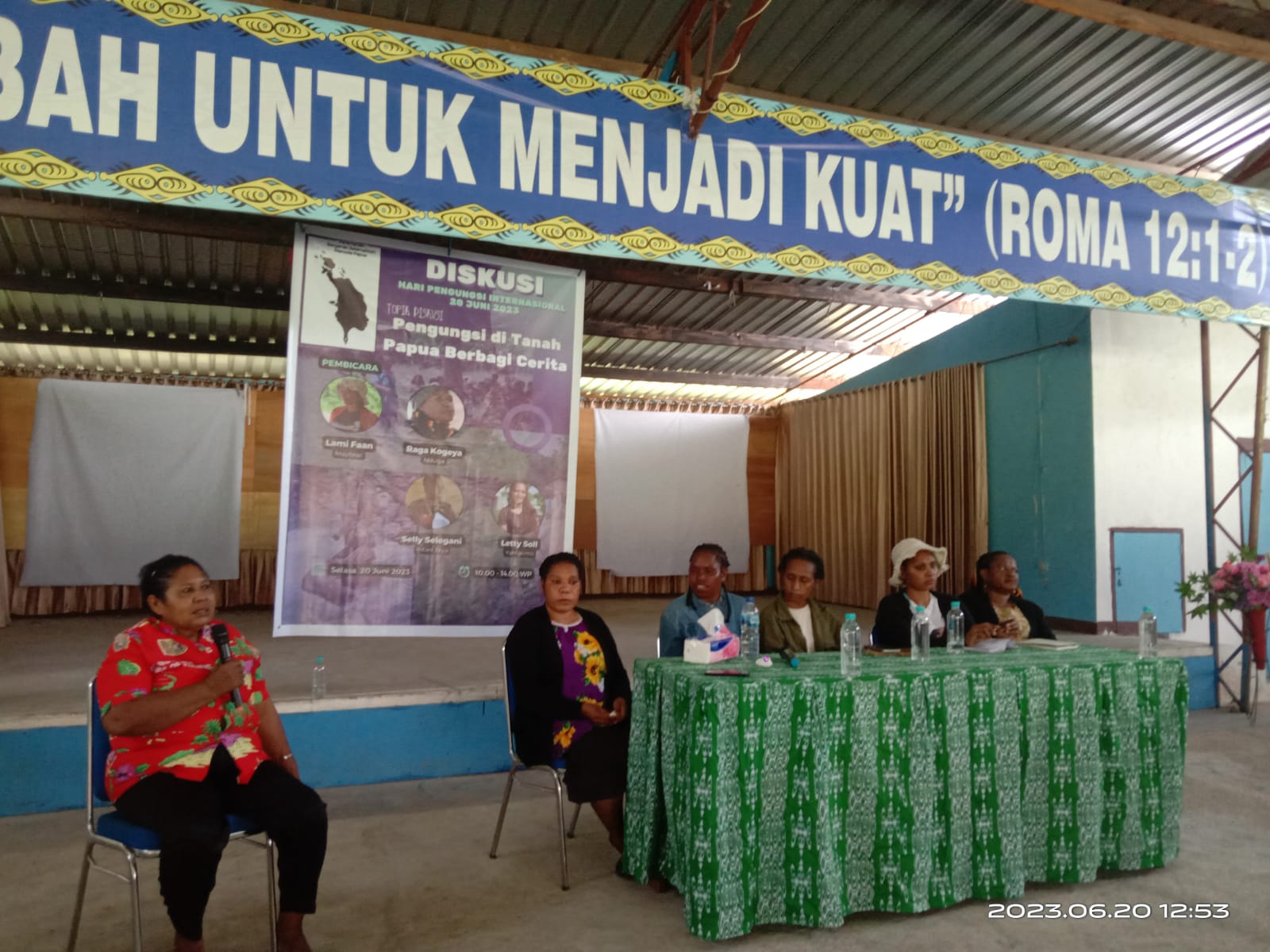Jayapura, Jubi – The presence of Indonesian Military (TNI) and Police in conflict-ridden areas of Papua has allegedly caused trauma among internally displaced Indigenous Papuans.
The displaced people urge the government to immediately cease military operations and restore their communities to normalcy. These concerns were expressed during a discussion attended by displaced women on Tuesday, June 20, 2023, as part of World Refugee Day commemoration.
Raga Kogoya, a displaced woman from Nduga Regency, is currently residing in a camp in Jayawijaya Regency with her four children. Raga, along with thousands of Nduga residents, fled to the forest and eventually sought refuge in Wamena City in December 2018.

She longs to return to her hometown, a sentiment shared by other displaced families. However, their hopes of returning to Nduga have not been fulfilled.
“If I could go back home, I would,” said Raga, who hasn’t been able to return since December 2018.
“But I have nowhere to live because they burned my house five years ago. Moreover, there are still TNI posts in the area,” she added.
Raga admitted that she still carries traumatic memories. The acts of violence committed by TNI soldiers against pregnant women and minors remain vivid in her mind.
These memories, according to Raga, deter them from returning to their hometowns despite the government’s assurance of safety and invitation to return.
“We, the Nduga displaced people, will only go back home if the state withdraws the security forces. They are still here today, especially in the Nduga area. They must be withdrawn first. Only then will the people of Nduga feel safe to return home,” she said.
Lamberti Faan shares a similar story to Raga’s. The mother of four expressed the immense difficulty she faces in meeting her children’s daily needs.

Following the attack on Kisor Military Post in Maybrat Regency in September 2021, which was succeeded by military operations in five districts of Maybrat, Lamberti has been living with several others in a relative’s house in Sorong Regency.
“This situation makes our lives very challenging. We struggle to find food, drink, and even a place to sleep. We have to bear with these difficult conditions,” Lamberti explained.
If it were possible for her family to return to their house in Faan Kahrio Village, she would gladly take her children back. Unfortunately, her hopes remain uncertain and unfulfilled.
“For now, I am compelled to stay in the evacuation site in Sorong because my house, village, church, and school have been occupied by the TNI as military posts. It is impossible for me to go home as long as soldiers and police still reside in our house, school, and church,” she lamented.
Since December 2018, over 5,000 indigenous Papuans have been displaced, seeking refuge in forests and other areas within Papua. Many residents have even sought safety near the Indonesia-Papua New Guinea border to avoid the armed conflicts between the TNI-Police and the TPNPB.
Internal displacement of Papuan residents is observed in conflict-affected regions such as Nduga, Intan Jaya, Puncak, Yahukimo, Bintang Mountains, and Maybrat. (*)





